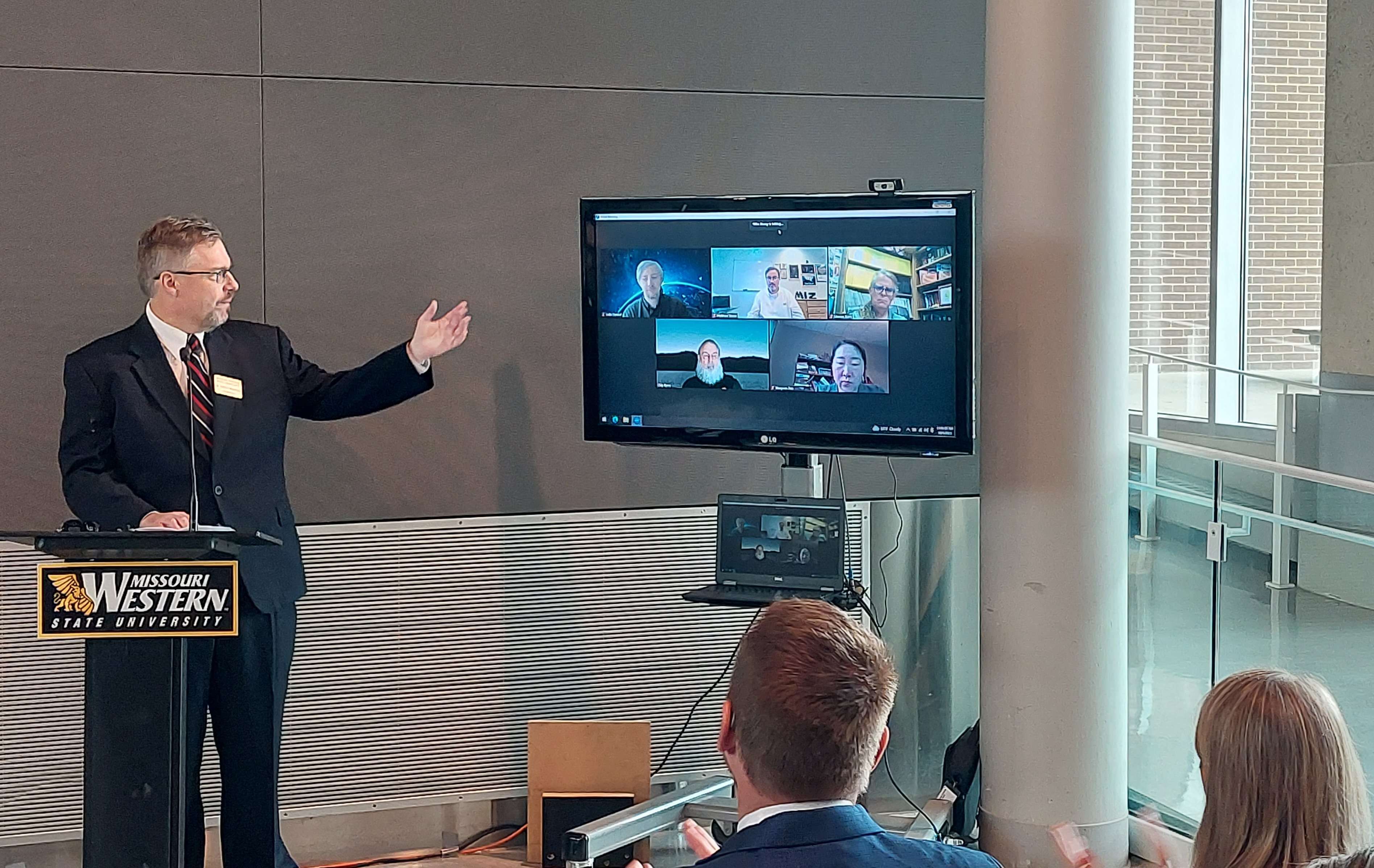
By MATT PIKE
St. Joseph Post
A grant from the National Science Foundation will give students at Missouri Western State University and three other Missouri universities money to build a new supercomputer.
The grant was put together by professors from Missouri Western, Truman State, Southeast Missouri State, and Webster University.
Missouri Western's Jeffery Woodford, the principal investigator for the grant, says the new supercomputer will be housed at the University of Missouri-Columbia, right next to the supercomputer the university is currently building
"So, we'll be able to access our supercomputer as if we were a student at Mizzou, like a graduate student potentially," Woodford tells KFEQ/St. Joseph Post.
Woodford says details must still be worked out with how best to communicate with the supercomputer
"So, students here will be able to connect to that computer there and they'll be able to do their research projects, their educational projects, like they were a student at Mizzou," Woodford says.
The computer, built of 20 different computers, will help enhance research projects at Western along with Truman State, Webster University, and Southeast Missouri State.
Physicist Colin DeGraf from Truman State uses his research on colliding galaxies and black holes as an example of how the supercomputer will help.
"So, you need to be able to simulate at least two galaxies that can then collide, and this scales up depending how many resources you have available to you can do cosmological simulations that will include many, many galaxies and you just sort of wait and see when they collide," DeGraf explains over Zoom. "And as you might imagine that can't be done without really nice super computers."
The supercomputer will be housed at and maintained by IT specialists at the University of Missouri-Columbia.
While the computer will be housed at Mizzou, Woodford says students won't even have to leave campus to access the computer.
"You'll be able to pull up your laptop, open up an app, and then be able to connect to this supercomputer as if you were a student right at Mizzou," Woodford explains. "Maybe the latency is a little bit slower, because you're not physically there, but it should be more or less seamless."
The hope is to have the system built and in place by next school year.








